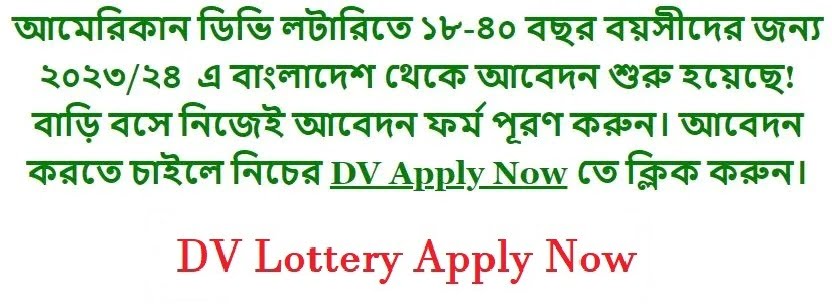
The Netherlands, known for its thriving economy, high standard of living, and work-life balance, is an attractive destination for professionals worldwide, including those from Bangladesh. If you’re a Bangladeshi citizen seeking to work in the Netherlands, you’ll need a work permit to legally take up employment. This guide provides a comprehensive overview of the steps, requirements, and processes involved in obtaining a Netherlands work permit from Bangladesh.
Step 1: Understand the Types of Work Permits
The Netherlands offers several types of work permits depending on the nature of your employment and stay. The most common categories include:
- Highly Skilled Migrant Visa: For individuals with high levels of expertise in fields like IT, engineering, or healthcare. Employers must be recognized sponsors by the Dutch Immigration and Naturalization Service (IND).
- EU Blue Card: A permit for highly skilled workers with an EU-recognized qualification. It allows mobility across EU member states.
- Regular Work Permit (TWV): This is typically for non-EU citizens. Employers must prove that no EU/EEA citizens are available for the job.
- Seasonal Work Permit: For temporary jobs, such as agriculture.
- Intra-Corporate Transfer Permit (ICT): For employees transferred within multinational companies.
- Startup Visa: For entrepreneurs looking to establish a business in the Netherlands.
Understanding which type of work permit suits your situation is crucial as the application requirements and processes vary.
Step 2: Meet the Eligibility Criteria
To apply for a work permit, you’ll need to meet specific criteria, which depend on the permit type. Common requirements include:
- Employment Contract: You must have a valid job offer from a Dutch employer.
- Salary Threshold: For highly skilled migrants and EU Blue Card holders, there are minimum salary requirements. For example, in 2025, highly skilled migrants under 30 years need to earn at least €3,672 per month.
- Qualifications: Depending on the job, you may need recognized educational qualifications or certifications.
- Employer Sponsorship: Your employer must often apply for the permit on your behalf and be registered as a recognized sponsor with IND.
- Proof of Accommodation: Evidence of a place to live in the Netherlands.
- Clean Criminal Record: You must provide police clearance certificates.
Step 3: Secure a Job Offer
The first step in the application process is to secure a job in the Netherlands. Websites like LinkedIn, Glassdoor, and Indeed are excellent platforms to search for opportunities. Additionally, networking with professionals in your field and reaching out to companies directly can increase your chances of finding a position.
Step 4: Employer’s Role in the Application
Once you’ve secured a job offer, your employer will handle most of the application process for your work permit. Here are the steps they’ll follow:
- Submit the Application: For highly skilled migrant permits, the employer submits the application to the IND.
- Prove Necessity: For regular work permits, the employer must demonstrate that no EU/EEA candidates are available for the position.
- Provide Documentation: This includes your employment contract, job description, and proof of salary meeting the required threshold.
Step 5: Prepare Your Documentation
As an applicant, you’ll need to prepare and submit the following documents:
- Valid Passport: Ensure your passport is valid for the duration of your stay.
- Employment Contract: A copy of your signed employment contract.
- Educational Certificates: Degrees or diplomas relevant to the job.
- CV and Cover Letter: Updated professional resume.
- Police Clearance Certificate: Demonstrating a clean criminal record.
- Health Insurance Proof: Mandatory to have valid health insurance in the Netherlands.
- Photographs: Recent passport-sized photos meeting Dutch requirements.
- Proof of Funds: Evidence of sufficient funds to support yourself until you start earning.
Step 6: Application Processing
After submitting the application, the processing time varies based on the type of work permit. For example:
- Highly Skilled Migrant Visa: Typically processed within 2 to 4 weeks.
- EU Blue Card: May take up to 90 days.
- Regular Work Permit: Generally processed within 5 weeks.
You’ll receive a notification from IND once a decision is made. If approved, you’ll receive a residence permit card and be allowed to work legally.
Step 7: Travel to the Netherlands
Once your work permit is approved, you can proceed with the following steps:
- Apply for an MVV Visa (if required): Bangladeshi citizens typically need an MVV (provisional residence permit) to enter the Netherlands. Your employer can help you with this process.
- Book Travel: Arrange your travel to the Netherlands.
- Register with the Municipality: Upon arrival, register your address with the local municipality to receive your BSN (citizen service number).
- Open a Dutch Bank Account: Essential for receiving your salary.
- Attend Orientation: Many employers offer orientation programs to help new hires settle in.
Step 8: Comply with Dutch Employment Laws
Once you start working, ensure you comply with Dutch labor laws and your work permit’s conditions. These include:
- Work Limitations: Some permits restrict you to specific roles or employers.
- Tax Obligations: Pay income tax and other contributions.
- Permit Renewals: Apply for renewals well before your permit’s expiration date.
Common Challenges and Tips
- Language Barriers: While many Dutch employers use English, learning basic Dutch can improve your employability and integration.
- Recognized Qualifications: Ensure your educational qualifications are recognized in the Netherlands. Use the Dutch Nuffic agency for credential evaluation.
- Networking: Leverage professional networks, including LinkedIn and industry-specific forums, to increase your chances of finding a job.
- Stay Updated: Immigration laws can change. Regularly check the IND’s official website for updates.
Conclusion
Getting a Netherlands work permit from Bangladesh involves several steps, from securing a job offer to navigating visa and permit applications. While the process may seem daunting, proper preparation and understanding of the requirements can simplify the journey. With its robust economy and excellent quality of life, the Netherlands offers a wealth of opportunities for skilled professionals. Follow this guide to turn your ambition of working in the Netherlands into reality.

